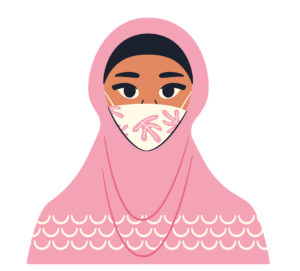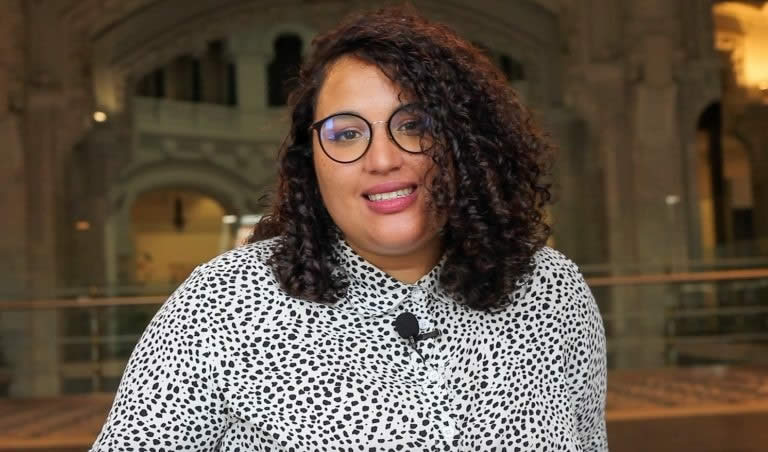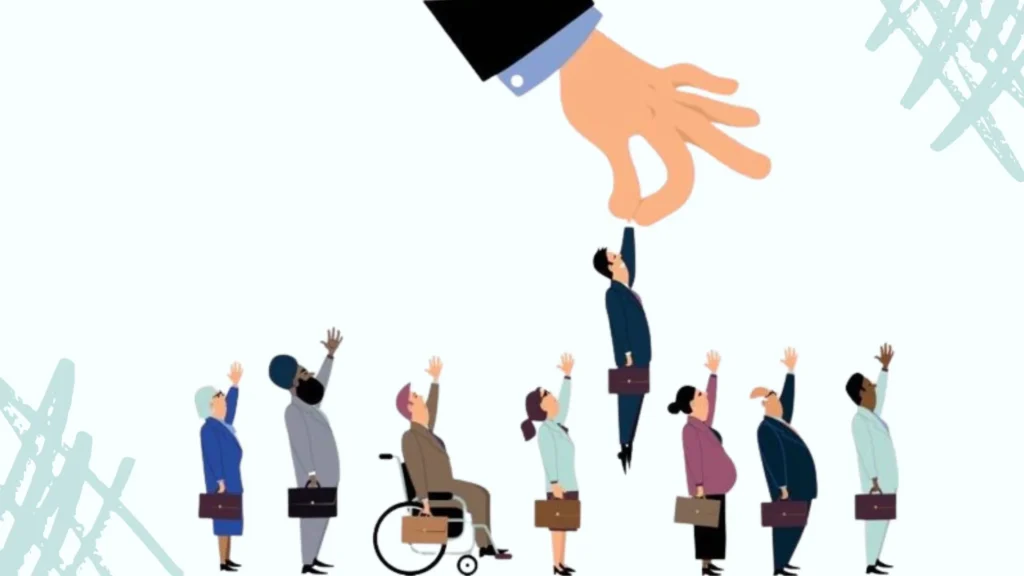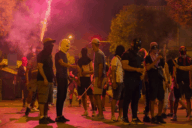Discrimination in access to the labour market against racialised people is a proven and empirical scourge, as studies and data show. This is explained by Fatima Ezzamouri, in this interview by Baynana, project manager and researcher on ethnic and racial discrimination in the Spanish labour market.
The Discrimination and Inequality Lab (D-LAB) is the largest study on racial discrimination in employment in Europe. It is a research project of the University Carlos III of Madrid in collaboration with the University of Amsterdam, the Berlin Social Science Centre (WZB) and the German Centre for Integration and Migration Research (DeZIM). The research was led by the sociologist Javier Polavieja and aims to test ethnic-racial discrimination in access to the labour market.
The study reveals and demonstrates that having a non-white phenotype is a major obstacle to finding employment for Europeans born of migrant parents. Among the experiments used, different identical professional CVs were generated but belonging to different fake profiles in which a series of characteristics changed: religion, ethnicity and gender through name, surname and photograph. The resumes were sent to real job vacancies, measuring for each candidate the responses received and the probability of being invited to an interview.
Fatima Ezzamouri, a political researcher and the daughter of migrants from Morocco, explains the “systematically unequal response” that exists between groups of candidates of Spanish origin and candidates from other ethnically and racially diverse backgrounds. “Objectively, there should not be any difference in the likelihood of being invited to an interview as the CVs are the same. Certainly, there is racism in the labour market, and any racialised person can be exposed”.
“Racism exists not only as a conscious practice of institutions, groups of people and organisations, but also permeates our own brains”, she adds. In many of the cases analysed, it can be observed that the decision to discard a CV is even anticipated just by knowing the origin of the candidate’s name, which suggests the existence of unconscious biases in recruitment. It is therefore essential to promote diversity and inclusion practices in companies, in addition to encouraging the implementation of measures such as the blind CV in recruitment processes.
Racism exists not only as a conscious practice of institutions, groups of people and organisations, but also permeates our own brains.
The study, published in the journal Socio-Economic Review, shows that having a black or Asian/Amerindian phenotype reduces the likelihood that an employer will be interested in a candidate by approximately 20% (average across the three countries studied: Germany, Spain and the Netherlands), while having a brown-skinned Caucasian phenotype (widespread in North Africa) reduces the average likelihood by approximately 10% compared to having a white Caucasian phenotype.
This study highlights the importance of breaking down discourses in which discrimination seems to be a matter based solely on perceptions and life stories that are completely valid, but is also a measurable and verified reality that helps to argue the fight against racism with more consistency and objectivity.
How does racism in the labour market affect the lives of children of migrants?
Migration and the labour market are closely linked because the acceptance of migration at the institutional level is very much determined by the needs of the labour market itself. This can be clearly seen in the migratory movements from the 1980s onwards in Europe, which facilitated the regularisation of many foreigners because there was a need for labour in less qualified sectors: care, services, construction, etc.
How does this affect us indirectly? The labour market permeates an image of what a migrant can and cannot do professionally. As children of migrants, no matter whether we are born here or not, we inherit the condition of migrant, even if we have not migrated, which is paradoxical.
If your name is Mohamed Yunes, no matter how much you have a master’s degree from the Sorbonne, for many employers, “Moha” is usually a bricklayer and not other professions. In their imagination, there is still an idea of what skills you have. And this is where the racist part comes in: thinking that you are not competent, or directly disliking you because of your origin. Pure racism.
Do you think that racism also exists in the workplace?
I think that in addition to access, racialised people have more problems when it comes to promotion within companies and also when it comes to being able to bring their cultures or their way of life into the workplace. Some workplaces can be very violent because they involve having to participate in group dynamics in which diversity is not understood or respected.
In some countries there are companies that adapt Ramadan schedules for their workers, that congratulate their Muslim workers on Eid, or Hindus on Diwali, that have vegan, vegetarian and kosher menus, but in Spain, there is a great lack of this. Diversity and inclusion policies are still insufficient to truly promote inclusion and ensure that racialised people enjoy their right to work.
What can you say about the differences in discrimination in the Spanish labour market compared to other European countries?
I constantly hear people say: ‘I have visited Belgium and I have seen people working with hijab’, and it seems that just because there is a person working in a Primark with hijab, there is no discrimination.
In Spain diversity and inclusion policies are still insufficient to truly promote inclusion and ensure that racialised people enjoy their right to work.
This research project was carried out in other EU countries and the results vary greatly depending on the country and the ethnic-racial group. The reality of the data from the study explains that in some countries there is more discrimination against certain groups, for example against North Africans in the Netherlands or more discrimination in some sectors where more qualifications are required for people with a migrant background, such as in the United Kingdom. Research shows that there is a racial structure in access to the labour market.
How does racism affect Muslim women of Moroccan origin in particular?
 In my case, I consider myself to be a woman, Muslim and racialised, but it is true that even though I have these categories, I also have certain privileges. On the one hand, I do not wear a hijab, which makes it much easier for me to integrate into the labour market and means that I am not seen as a Muslim at first glance. On the other hand, I work in a sector where there is a preponderance of women, such as the social sector. However, I do believe that there is a certain amount of violence towards Muslim women, as people have a preconceived image of what Muslim women are like, and if they have not had much contact, they will project these prejudices on a day-to-day basis and on the skills we have, both in terms of access to work and in the job itself.
In my case, I consider myself to be a woman, Muslim and racialised, but it is true that even though I have these categories, I also have certain privileges. On the one hand, I do not wear a hijab, which makes it much easier for me to integrate into the labour market and means that I am not seen as a Muslim at first glance. On the other hand, I work in a sector where there is a preponderance of women, such as the social sector. However, I do believe that there is a certain amount of violence towards Muslim women, as people have a preconceived image of what Muslim women are like, and if they have not had much contact, they will project these prejudices on a day-to-day basis and on the skills we have, both in terms of access to work and in the job itself.
What can be done individually and collectively against discrimination in the labour market?
It is very important to keep organising and mobilising, and above all to report it.
I think it is very important to keep organising and mobilising, and above all to report it. There are more and more protocols, laws and legislative instruments that make it possible to denounce this type of action, as well as organisations that provide advice and support for hate crimes, which are very important for us to know about. Reporting is essential because without reporting and without data there is no advocacy for change. It is also important to share on social networks, connect with social movements and activists who are denouncing and voting politically for the options that are most sensitive to this.
Being a racialised person exposed to different discriminations can be very hard and I believe that having spaces to rest and self-care as a community is essential, as practising the vision we want of the world is a way to create it.
Ibrahim Rifi
Fuente: Baynana.

















No Comments